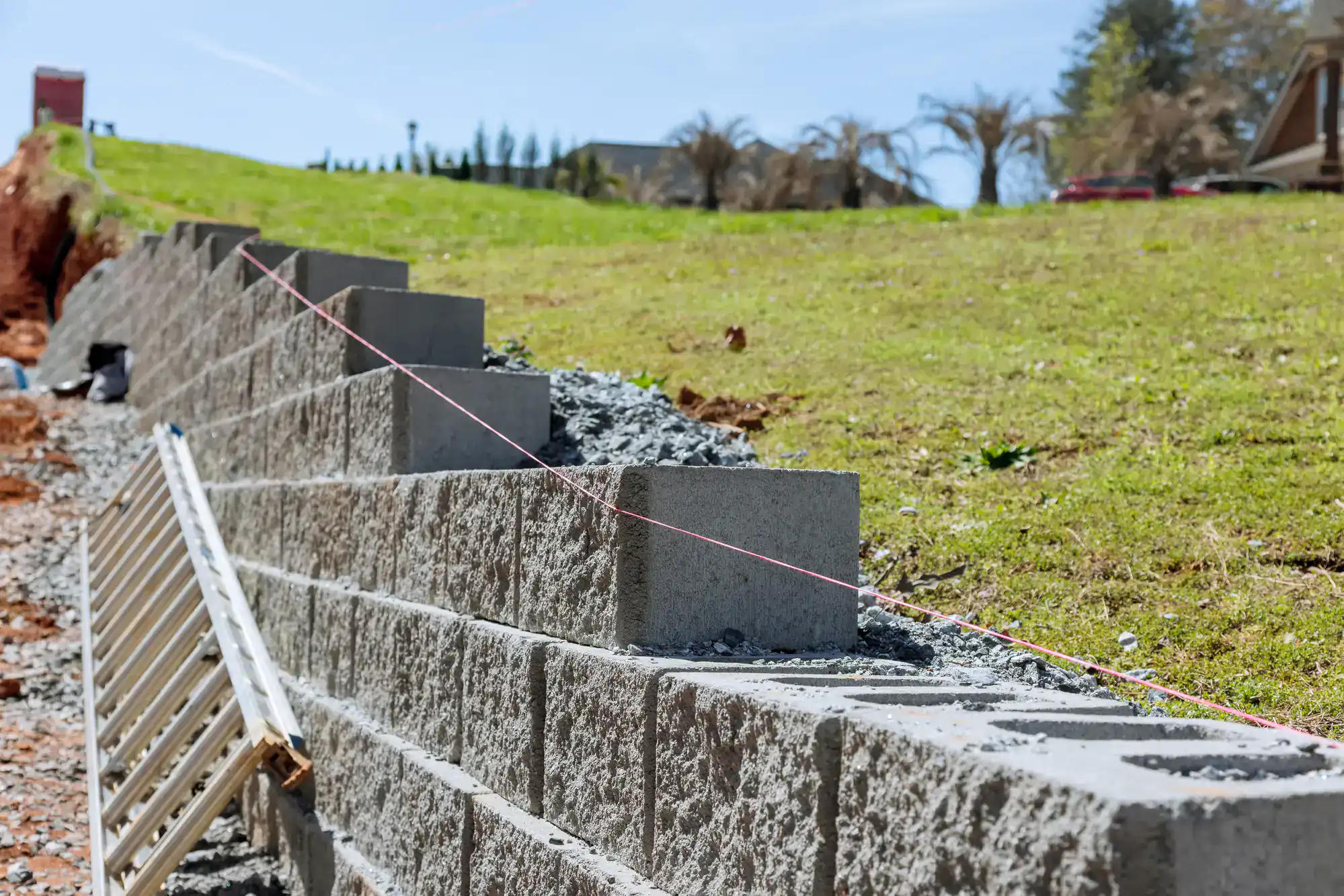
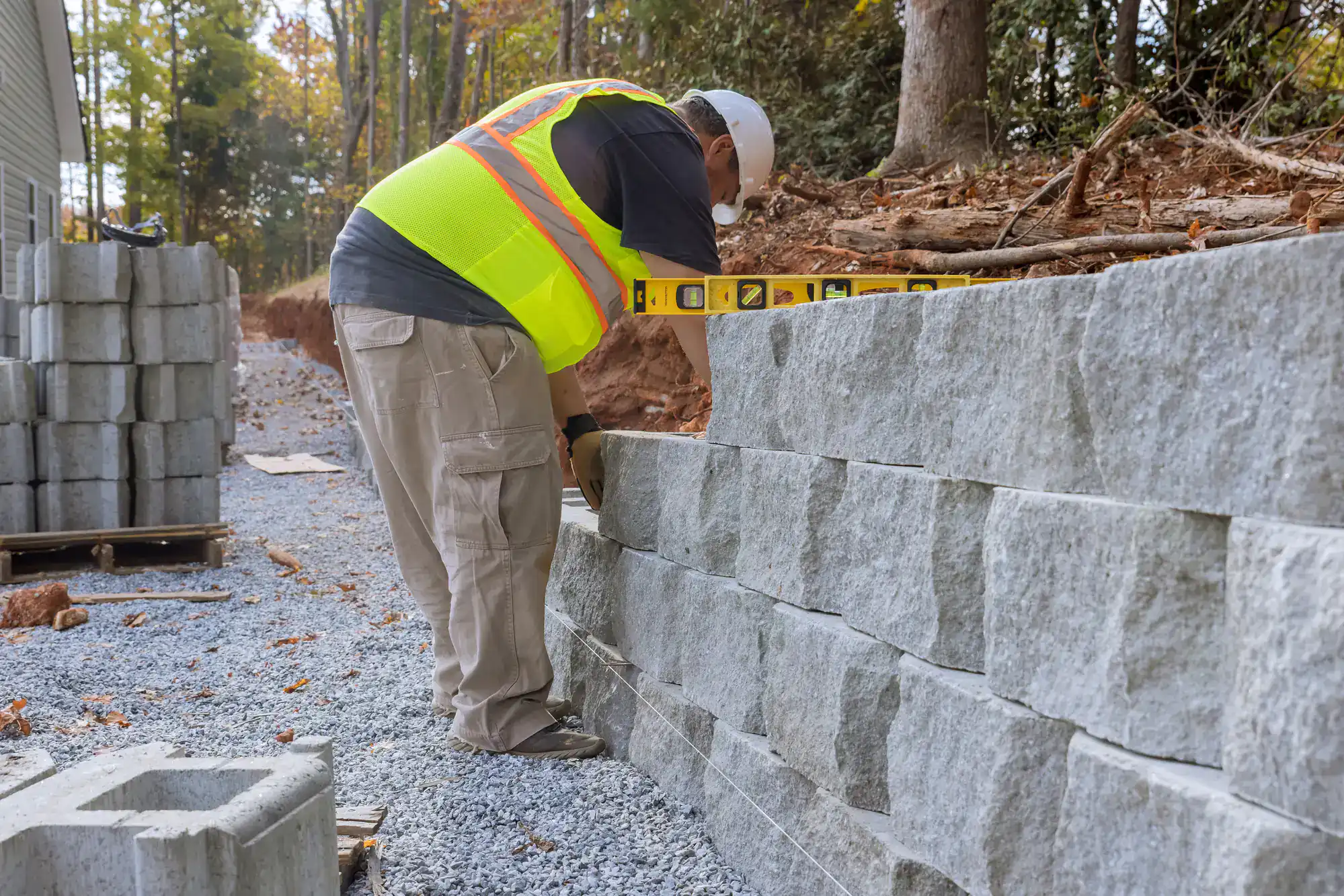
Your sloped yard isn’t just an eyesore—it’s money washing away with every heavy rain. Center Hill gets 54 inches of precipitation annually, and that water doesn’t care about your landscaping budget or your home’s foundation.
A properly built retaining wall stops the bleeding. You get flat, usable space where there used to be an unusable slope. You protect your foundation from the kind of soil movement that leads to expensive structural repairs. And you actually boost your property value—home appraisers consistently show 100% to 200% returns on quality retaining wall investments.
The difference between a retaining wall that works and one that fails comes down to understanding Center Hill’s unique soil conditions and Florida’s demanding climate. Sandy soil drains well, but it also shifts and erodes easily. Clay areas expand and contract with moisture changes. Both create challenges that require specific solutions, not generic approaches.
Since 1995, we’ve been the family-owned company Center Hill residents trust when slopes threaten their properties. We’re not just retaining wall contractors—we’re your neighbors who understand exactly what Central Florida soil and weather do to unprotected landscapes.
We’re Authorized Contractors for Tremron, Flagstone, and Belgard, which means we meet the strict standards these manufacturers require. We’re also the exclusive Seal ‘n Lock distributor in Citrus County, giving you access to the best protection products available. Our state-licensed irrigation expertise means we handle drainage properly—the detail that separates walls that last from walls that fail.
You’ll find us helping with hurricane cleanup, supporting Toys for Tots, and backing local youth programs. We’re Chamber of Commerce members because we believe in this community. When you hire us, you’re working with people who plan to be here for your grandchildren.
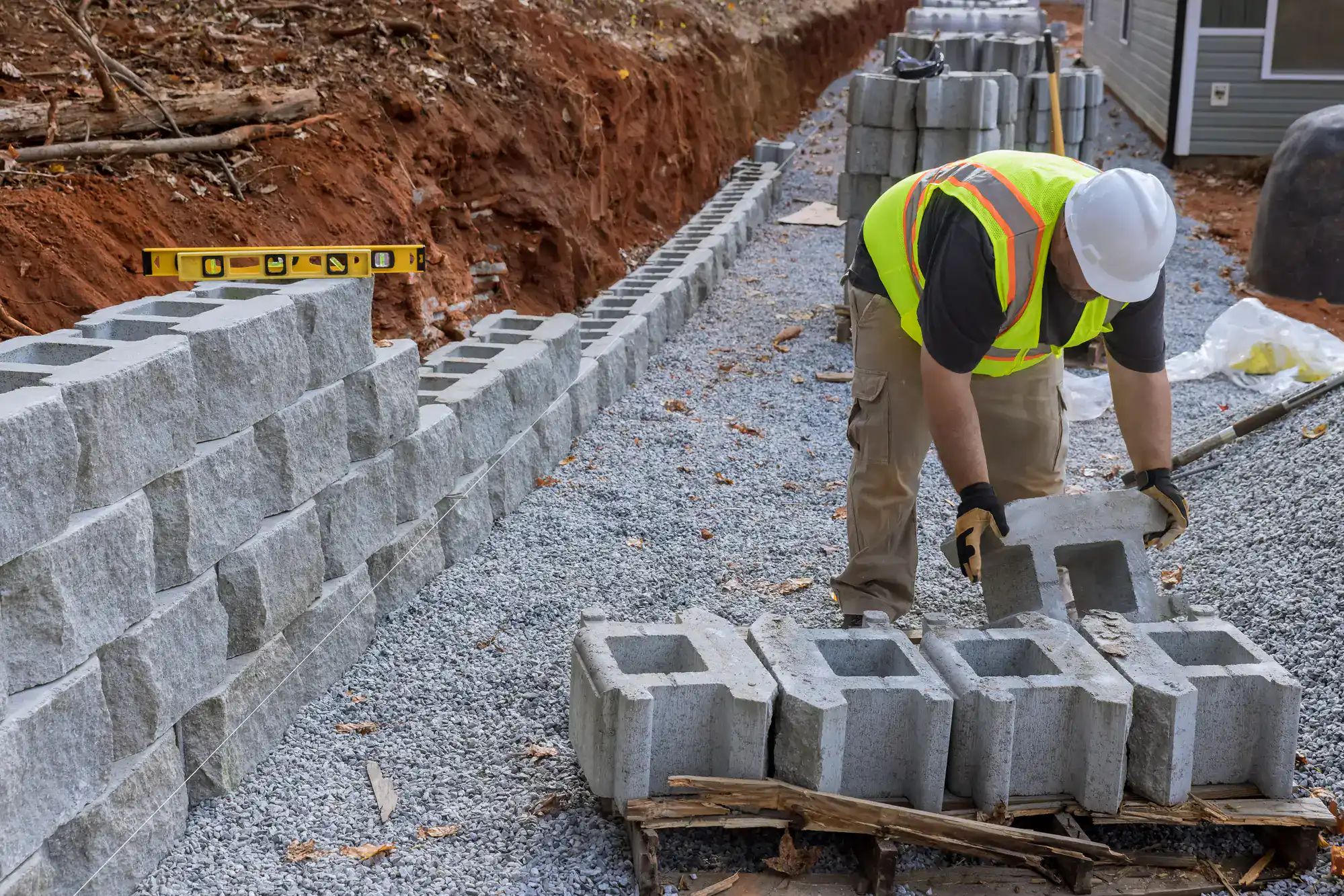
Every retaining wall project starts with understanding your specific soil conditions and drainage patterns. We test the soil, evaluate the slope, and identify any water flow issues that could compromise the structure. Center Hill’s mix of sandy and clay soils requires different approaches depending on your exact location.
Next comes proper excavation and base preparation. The foundation determines everything—we dig deep enough to hit stable soil, install proper drainage systems, and create the level base that keeps your wall straight and strong for decades. Most failures happen because someone skipped steps here.
Then we build using proven techniques and quality materials. Every course gets checked for level and alignment. Drainage goes in behind the wall as we build, not as an afterthought. We backfill with the right materials, compact properly, and finish with attention to details that matter. The result is a retaining wall that handles Florida’s weather and Center Hill’s soil conditions without problems.
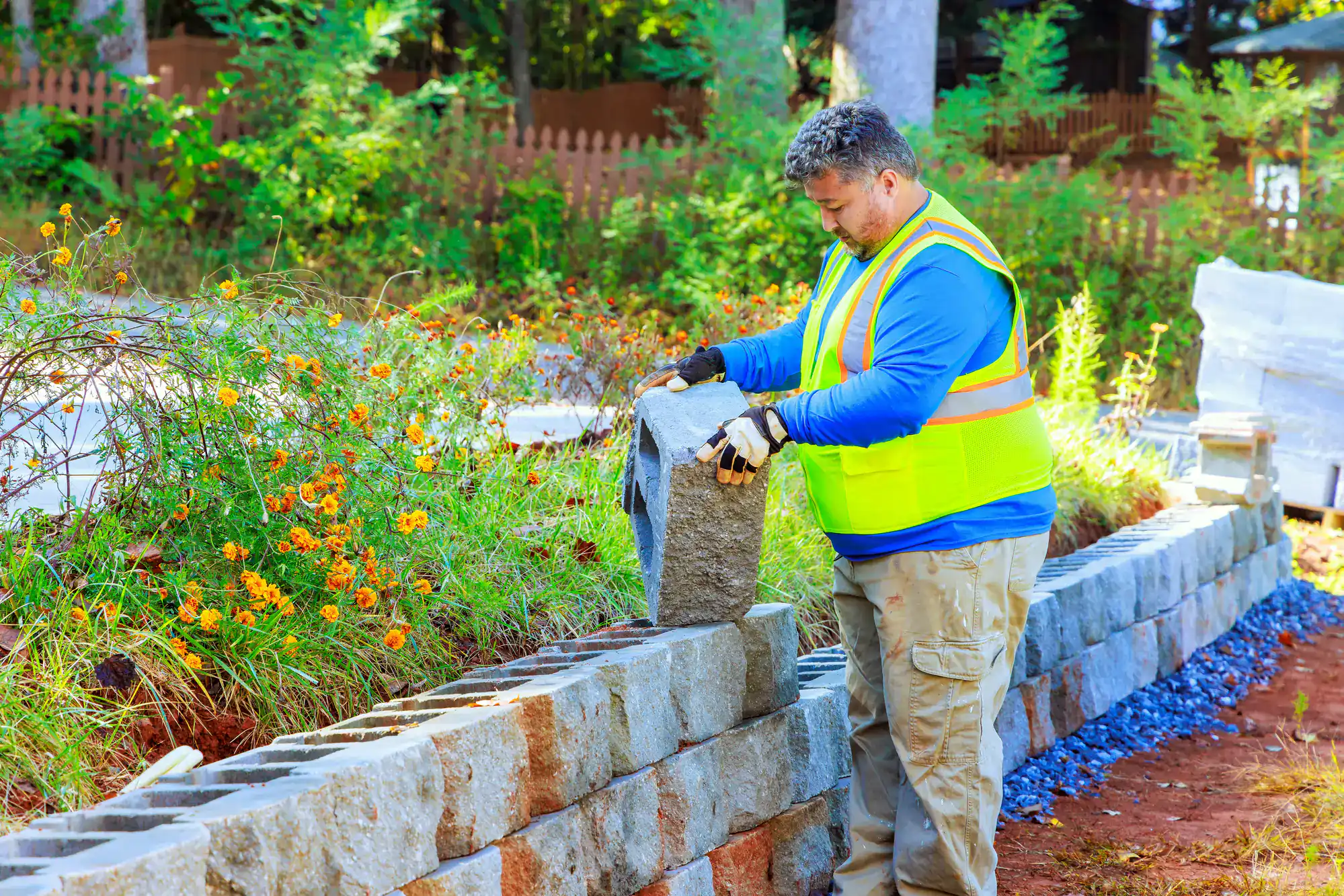
Ready to get started?
Center Hill’s climate demands materials that handle heat, humidity, and heavy rainfall without failing. We use concrete block systems, natural stone, and engineered solutions that prove themselves in Central Florida conditions year after year.
Concrete block retaining walls offer the best combination of strength, durability, and cost-effectiveness for most Center Hill properties. These interlocking systems handle the soil pressure while allowing for proper drainage. Natural stone provides the upscale appearance many homeowners want, with the structural integrity to handle challenging soil conditions.
For taller walls or complex soil situations, we design engineered solutions using geogrid reinforcement and specialized drainage systems. These walls handle the kind of soil pressure that would destroy simpler approaches. Every material choice considers Center Hill’s specific challenges—from the sandy soil that shifts easily to the clay areas that expand and contract with moisture changes. The goal is always the same: a wall that works properly for decades, not just until the next heavy rain season.
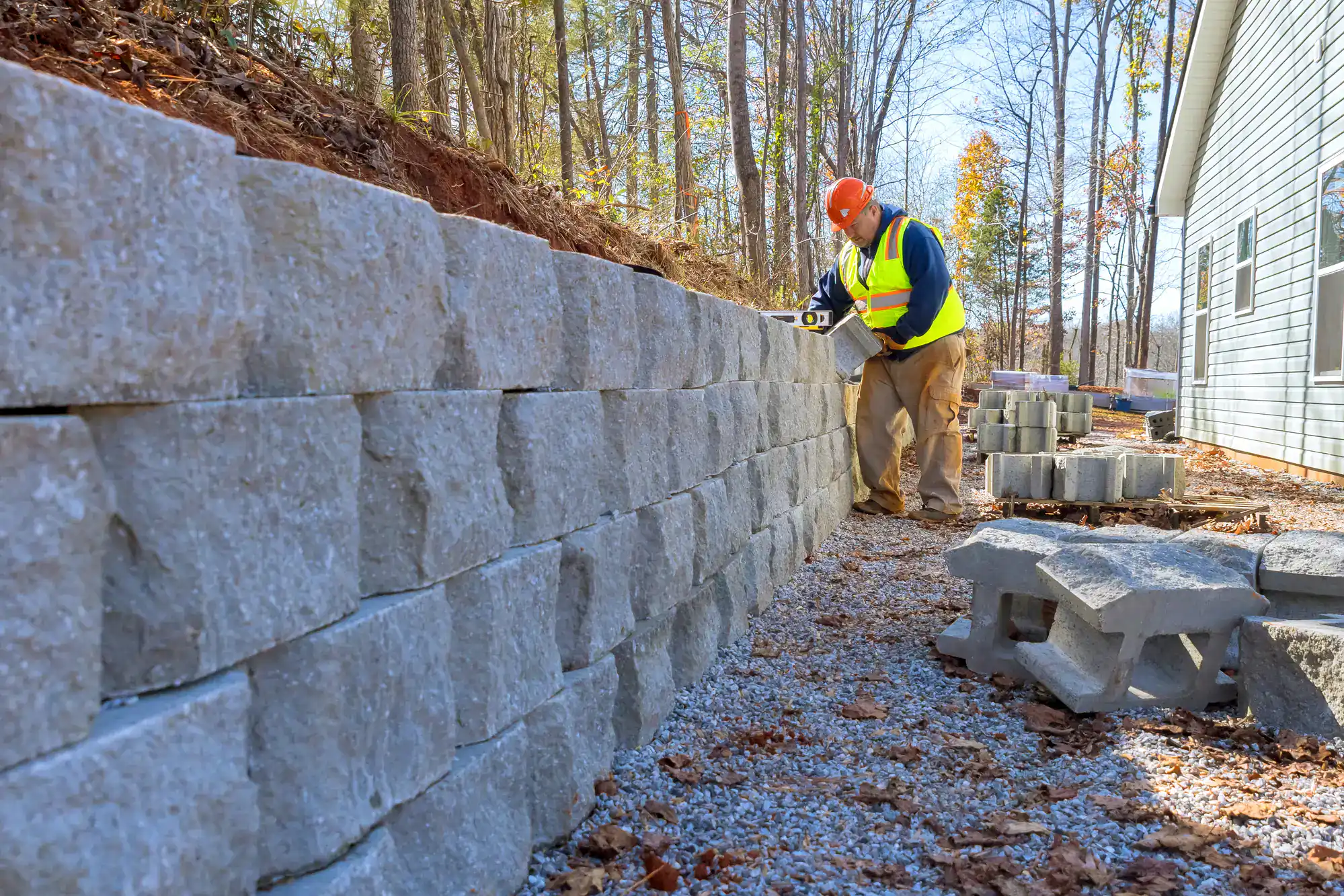
Retaining wall costs in Center Hill typically range from $2,000 for small decorative walls to $16,000 or more for larger structural walls. The price depends on wall height, length, materials, and site conditions like soil type and drainage requirements.
Most municipalities require permits for walls over 12 inches tall, which adds engineering and permitting costs before construction begins. Walls over 3.5 feet require engineered plans, increasing the investment but ensuring safety and compliance.
We provide detailed estimates that break down material, labor, and permit costs upfront. This helps you understand exactly what you’re investing in and why certain elements—like proper drainage and engineered foundations—are worth the cost for long-term performance.
Center Hill’s sandy soil and clay areas require different retaining wall approaches. Sandy soil drains well but shifts easily, making interlocking concrete block systems ideal because they flex slightly with soil movement while maintaining structural integrity.
Clay soil areas need walls designed for expansion and contraction. These soils can expand up to 30% when wet, creating enormous pressure against retaining walls. Proper drainage becomes critical, along with materials that handle the stress without cracking.
We test your specific soil conditions before recommending materials. Some properties have mixed soil types, requiring hybrid approaches that address different challenges in different areas. The key is matching the wall system to your actual soil conditions, not using a one-size-fits-all approach that works somewhere else.
Yes, most retaining walls in Center Hill require permits if they’re taller than 12 inches. Walls over 3.5 feet require engineered plans from a licensed structural engineer. The permitting process typically costs between $65 and $585, depending on wall size and complexity.
We handle the permitting process for you, including engineer coordination when required. This ensures your wall meets all local building codes and safety requirements. Skipping permits can result in fines and requirements to tear down completed work.
The permitting process also protects you by ensuring proper design for your specific soil conditions and drainage requirements. While it adds time and cost upfront, it prevents much more expensive problems later when walls fail due to inadequate design or construction methods.
Properly built retaining walls in Center Hill typically last 50+ years with minimal maintenance. The key factors are quality materials, proper drainage, and construction techniques suited to Florida’s climate challenges.
Florida’s heat, humidity, and heavy rainfall test retaining wall materials and construction methods. Walls built with proper drainage systems and appropriate materials handle these conditions without problems. Poor drainage or inadequate materials lead to failures within 5-10 years.
We use materials proven in Central Florida conditions and install drainage systems that handle the area’s 54 inches of annual rainfall. Regular inspections every few years help identify any minor issues before they become major problems. With proper construction and occasional maintenance, your retaining wall investment protects your property for decades.
Yes, properly designed retaining walls effectively prevent the soil erosion that leads to foundation damage. Center Hill’s sandy soil and heavy rainfall create perfect conditions for erosion that can undermine foundations and cause expensive structural problems.
Retaining walls hold soil in place and direct water flow away from structures. This prevents the gradual soil loss that leaves foundations unsupported and vulnerable to settling or cracking. The investment in a quality retaining wall is typically much less than foundation repair costs.
The key is addressing erosion problems before they damage your foundation. Once foundation damage occurs, you’ll need both foundation repairs and erosion control measures. A retaining wall installed proactively protects your foundation investment and maintains your property’s structural integrity for years to come.
Professional retaining wall installation ensures proper engineering, drainage, and construction techniques that DIY approaches typically miss. Retaining walls support tons of soil pressure—poor construction can lead to catastrophic failure and property damage.
DIY retaining walls often fail because of inadequate foundations, poor drainage, or inappropriate materials for the soil conditions. Professional installation includes soil testing, proper excavation, engineered drainage systems, and construction techniques proven in Central Florida conditions.
The cost difference between DIY and professional installation becomes insignificant when you consider the risks. A failed retaining wall can cause property damage, safety hazards, and expensive reconstruction costs. Professional installation provides warranties, insurance coverage, and the peace of mind that comes with proper engineering and construction methods.
Useful Links